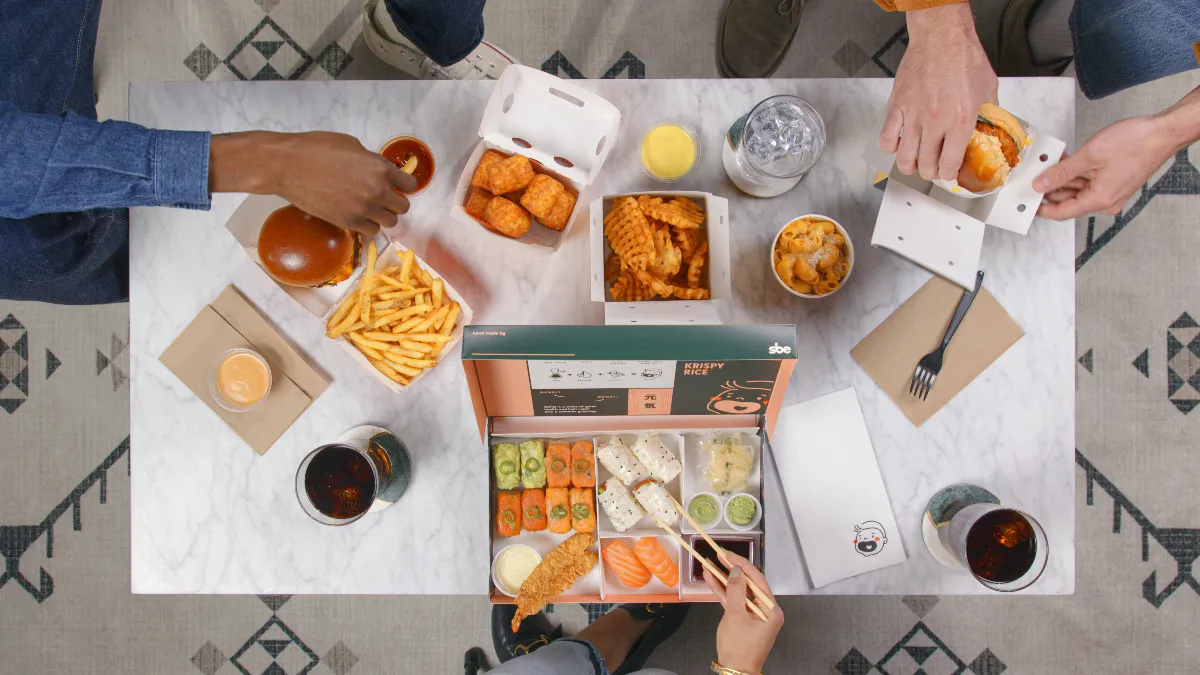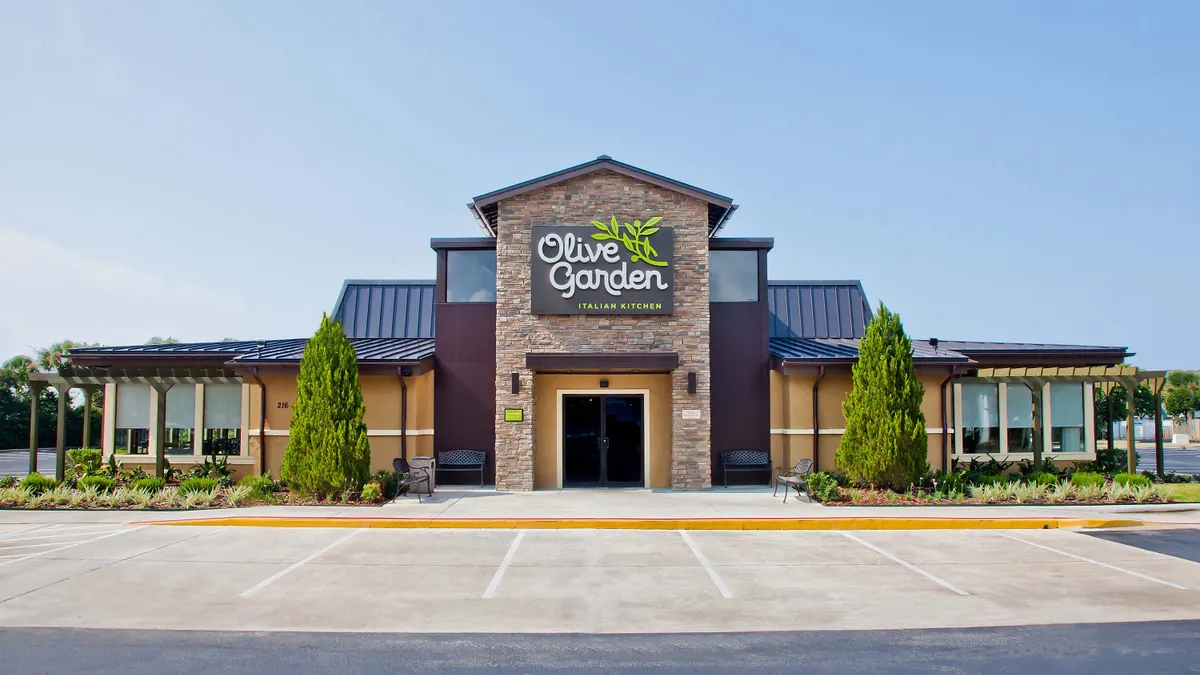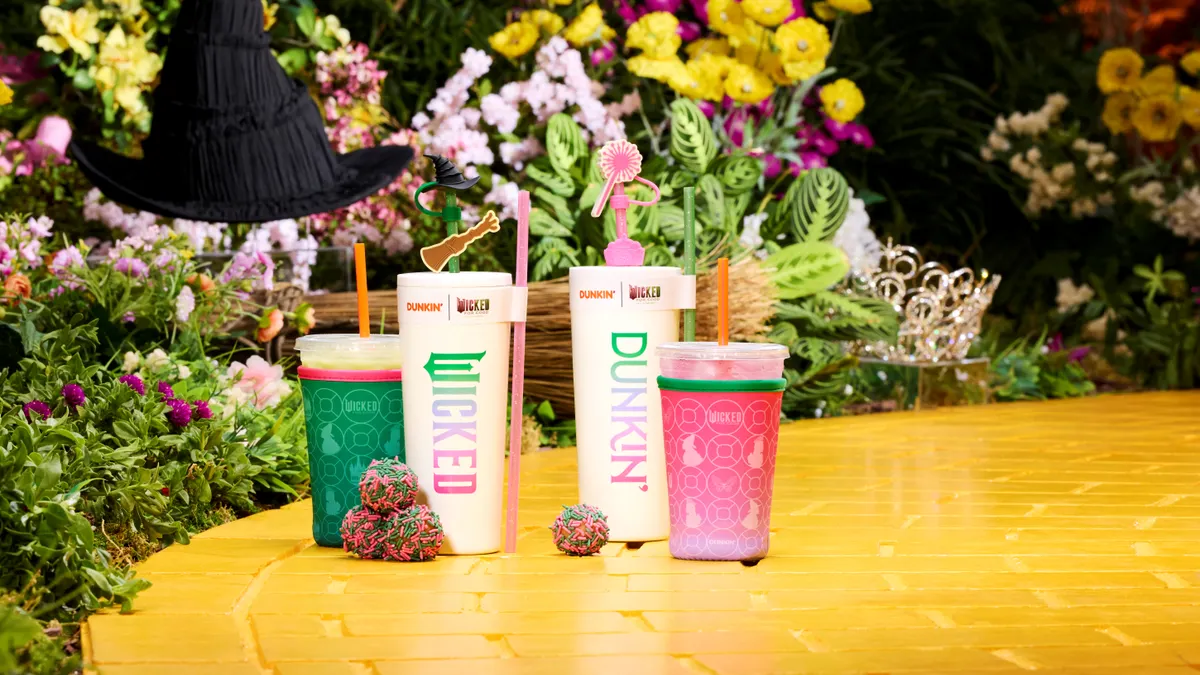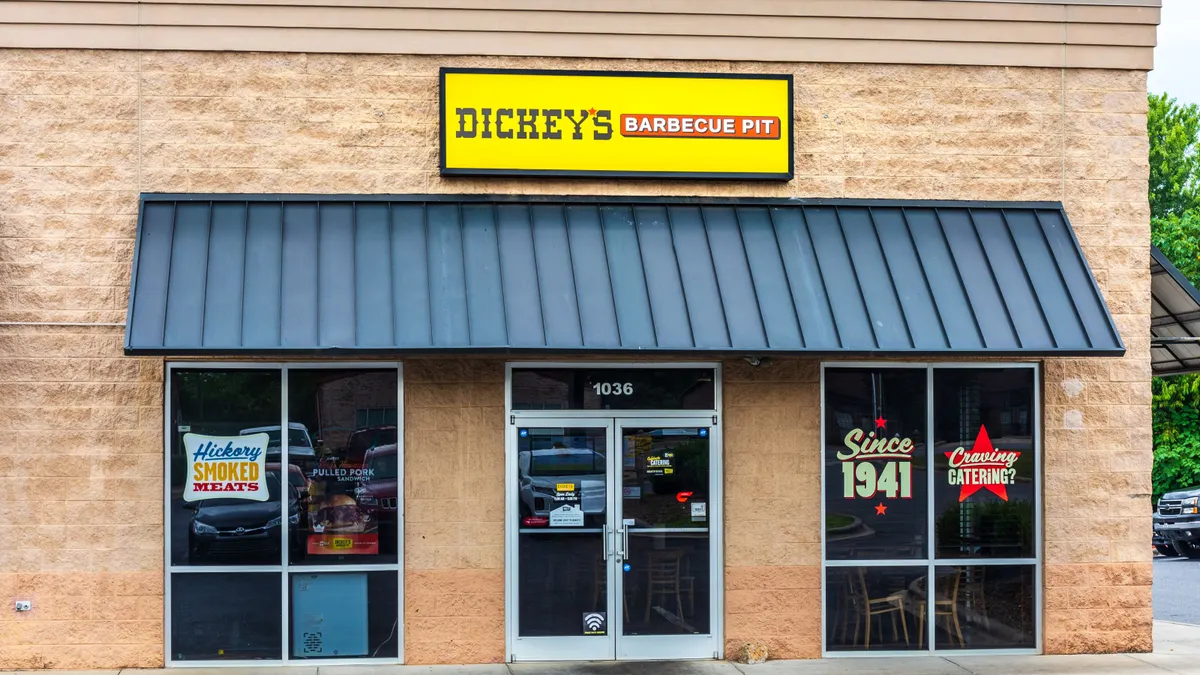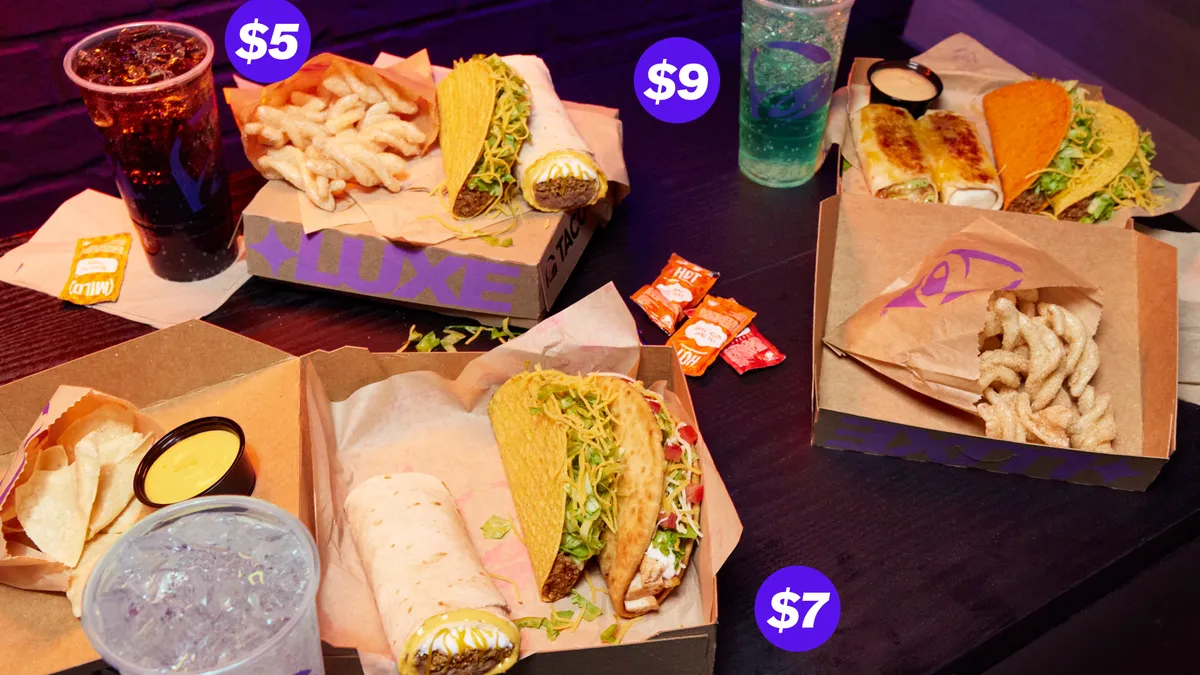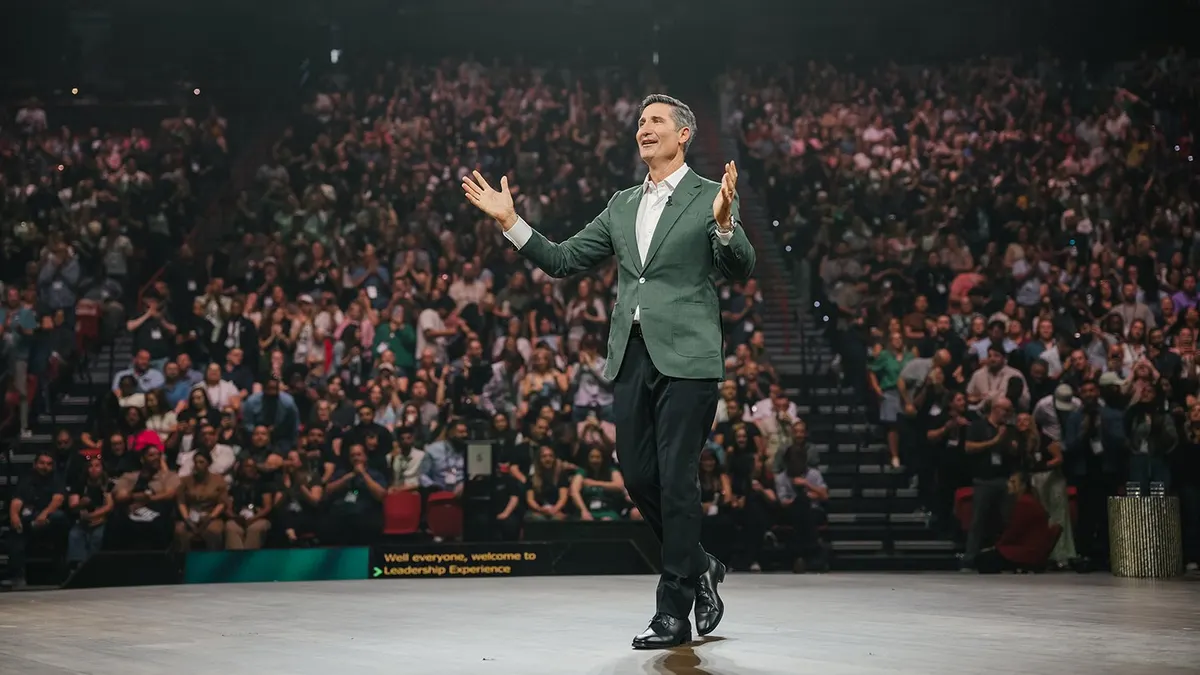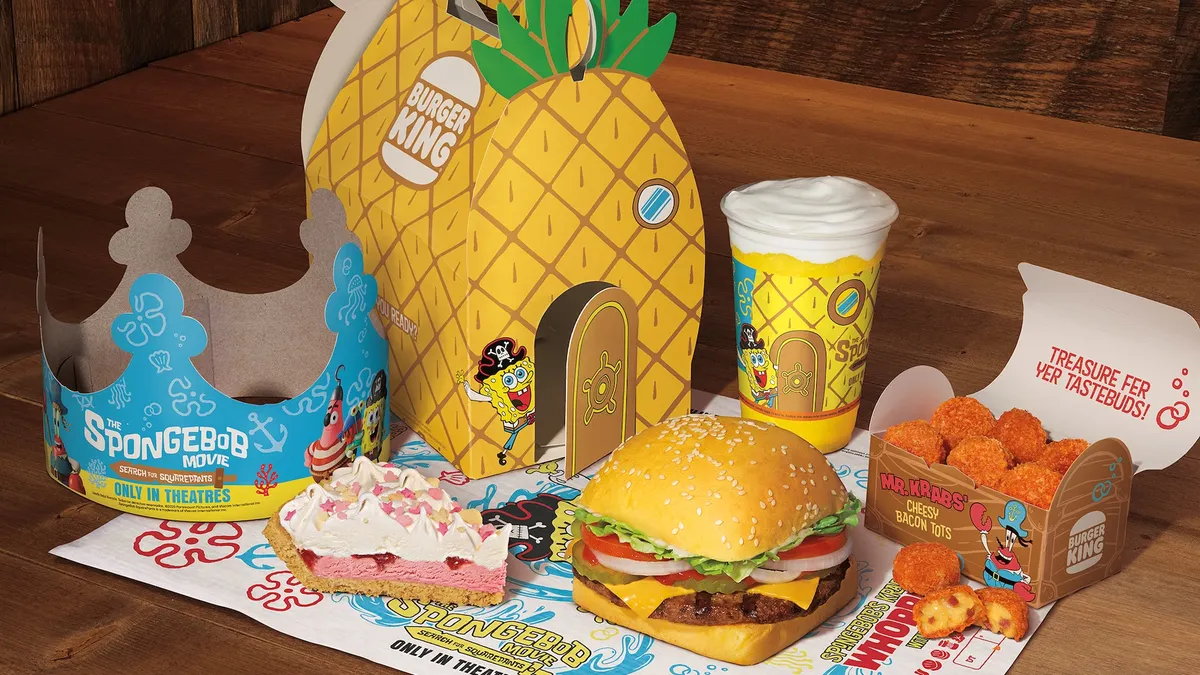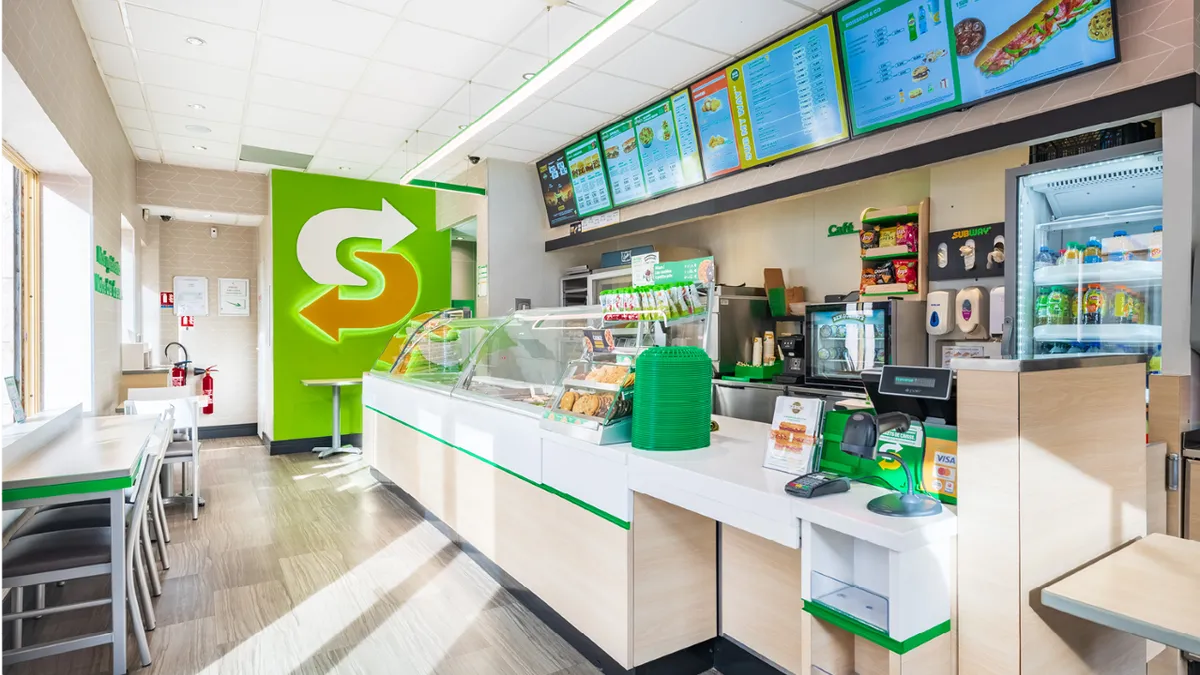YouTube comedian and personality Danny Duncan is known for performing antics with his friends, such as driving a tank, shooting off explosives and driving an ATV through a ring of fire. The 29-year-old also uses his channel to promote his retail line of hoodies, shirts and shorts. But soon he'll be promoting a delivery-only food brand through a partnership with Creating Culinary Communities (C3) to his over 6 million subscribers.
C3 has launched a division focused on developing new virtual restaurant brands with top digital creators, YouTubers and gamers, the company announced Wednesday. C3 will oversee day-to-day operations, growth and decision making for each collaboration.
This venture is expected to result in about $1 billion in revenue by 2025, reaching 165 million Gen Z consumers through the creators involved, according to an email sent to Restaurant Dive. This community of creators will provide C3 with an opportunity to reach 500 to 1,000 kitchens and generate a minimum of 15 to 20 orders per kitchen per day.
C3's expansion into virtual brands with the backing of online influencers will help the company expand beyond its popular delivery-focused brands, such as Umami Burger, Krispy Rice and Sam's Crispy Chicken. Social media influencers come with a built-in audience and can help promote their virtual brands. Initial partnerships with content creators also include deals with YouTubers Preston and Briana Arsement, Matt Stonie and Rosanna Pansino.
Other virtual brand companies, such as Nextbite and Virtual Dining Concepts, have also been working with celebrities and media influencers to create delivery-only concepts that come with built-in followers.
C3 rolled out its first three creative partner brands on Wednesday and expects to debut three more by the end of December, C3 founder and CEO Sam Nazarian said, adding that more will come during the first half of 2022. Instead of doing one-off deals with different entrepreneurs around the world, the company felt that it needed to become an incubation hub for these creators in order to develop more sustainable, long-term brands that can create revenue for its partner restaurants, Nazarian said.
The company partnered with leading multimedia talent management companies including Loaded, which manages some of the world's prominent gaming content creators and influencers, and Tastemade, a media company that creates video content and original programming about food, travel and home and design.
C3 so far has exclusive deals with six or seven entrepreneurs, which have a 50/50 revenue partnership with C3. The company is also talking to some of the biggest gaming companies in the world that want access to these brands and to create a market collaboration, Nazarian said.
Tapping into younger demographics
Celebrity partnerships will allow C3 to connect with Gen Z consumers, a cohort that is expected to have income reaching $33 trillion by 2030, according to the press release.
"What I think is new is the demographic that is now looking for their news, looking for their content, looking for their entertainment completely in the worlds of gaming and YouTube," Nazarian said. "You can spend a ton of marketing in traditional channels, but authentic marketing is the most important for demographics [like millennials and Gen Zers]."
These partnerships will enable customers to integrate food with their entertainment. If they're watching YouTube, they can order food from the YouTube personality they're viewing and continue to watch that content, he said.
"It's a really powerful connection," he said. "The most important part of this business [and] the most expensive part of this business is customer acquisition."
Younger demographics also tend to have different ordering times than traditional restaurant operating hours, often wanting food between 11 p.m. and 3 a.m., Nazarian said. Serving a virtual brand to younger customers during a restaurant's off-hours, or during dayparts it doesn't normally offer, such as breakfast, can create incremental revenue without added capital expense, Nazarian said.
C3 is also building an expanded direct-to-consumer marketplace that allows C3, restaurants and consumers to benefit from lower costs. Brands placed on a third-party marketplace typically incur expenses associated with marketing and commissions, and operators don't receive any data about the consumers, just the orders. But directly accessing tens of millions of people who watch online media more than commercials and movies brings in a wealth of data and a direct line to customers, he said.
The direct-to-consumer channel is becoming the fastest-growing segment of digital ordering, Nazarian said. Offering an online marketplace through C3's Go by Citizens app brings customers in not only to view products by influencers like Danny Duncan, but also to find other like-minded brands, which can generate a huge amount of traffic for C3 and its partners, he said.
"It's ultimately all of our restaurant partners and licensed partners and partners like Reef and TGI Fridays — all this amazing scale that we have built around the world — can benefit from this direct channel," he said.
C3, which received $80 million in funding earlier this year, has been aggressively growing its restaurant partner ecosystem in the past year. The company partnered with Chowly earlier this year to bring its virtual brands to Chowly's network of 10,000 restaurants. It also expanded its partnership with Reef from 500 kitchens to 800 by the end of 2025, and has partnered HOA Brands. C3 currently has 800 digital brand locations in the U.S. and has a pipeline of well over 1,000.
The company also has been opening brick-and-mortar locations around its digital brands. It opened food halls in New York City and Miami which showcase the concepts, Nazarian said. C3 is working with the Graduate Hotel system, which has 45 hotels around major college campuses, as well. This partnership will be a great way to bring these creator brands to younger demographics, he said.
What goes into creating a sustainable virtual brand
Creating brands that can reach these demographics and keep them engaged long-term is also becoming a high priority for virtual brand builders. The market has been flooded with burner brands that come into the restaurant segment as people see new opportunities based on viral trends, but these creators often have little experience in creating sustainable brands compared to restaurant professionals, Nazarian said.
C3 builds its brands in a very strategic manner, Nazarian said. The company goes through a rigorous research and development process to understand the market, how these brands need their food to be cooked and the kitchen equipment that’s needed. Then it hand picks restaurant partners that become fulfillment and licensing partners, he said. Restaurants also receive a tablet that is preloaded with C3’s tech stack to help them get started quickly.
C3 initially meets with internet influencers and asks what they are passionate about, and what their ecosystems are passionate about. The company then strategizes with its culinary, packaging, supply chain and graphics and branding teams to create a successful product with quality and consistency that can be replicated in its own kitchens and within its restaurant partner system.
The company uses its data to place virtual brands with restaurants in markets where the brands are popular, he said. Consumers in an urban market have different ordering patterns than those in a suburban market, for example, and different concepts would be placed accordingly.
The company also has brand, marketing, digital and SEO teams to make sure that operators are paired with the right brands for their markets.
"We have enough IP to be able to identify where the opportunities are, and then tactically put those brands in there and start generating a very, very strong revenue," Nazarian said.
C3 will incorporate these new celebrity brands and menu items into its Go by Citizens app, which allows consumers to order from multiple brands with a single cart. The company plans to strengthen the app experience with targeted content, curation and connectivity between digital creators and their audiences, according to the press release.
"We created a real division that is not only going to continue being the hub for the industry of people that want to come work with us, which we found to be unbelievably exciting, but also to make sure that those brands stay relevant and the brands are good, the brands you want to eat," Nazarian said. "I think we have a pretty good formula not to overextend ourselves, but also [with] the brands that we do [to] make sure that they have a framework of success."


